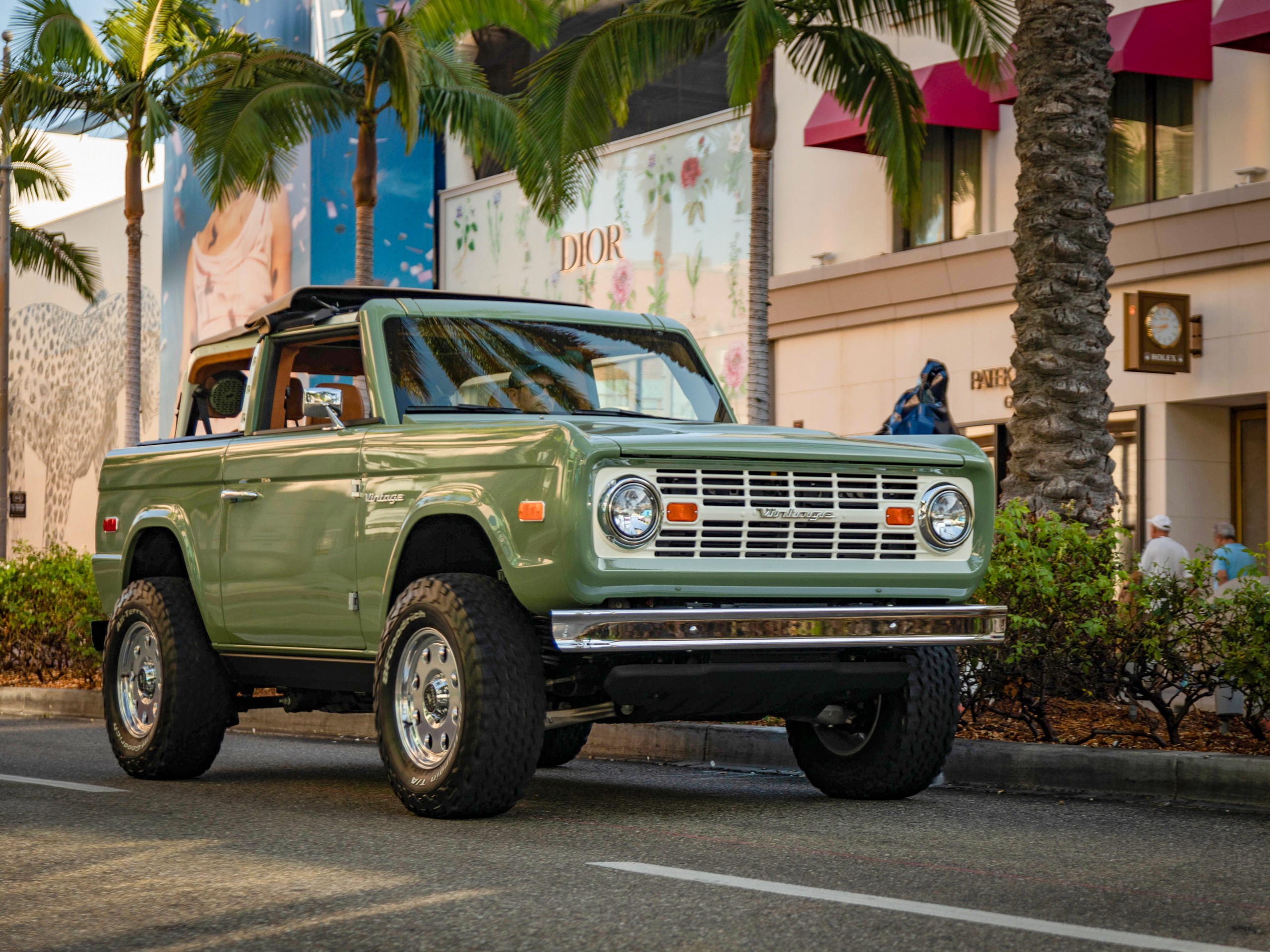The automotive world was recently rocked by a lawsuit filed by Ford Motor Company against Vintage Modern, a company specializing in reimagining classic Ford Broncos. This legal battle centers around trademark infringement, trade dress, and consumer safety concerns, raising crucial questions about the aftermarket industry and the boundaries of vehicle modification. This article delves into the details of the “Vintage Broncos Ford Lawsuit,” examining the arguments from both sides and the potential implications for the future of custom car builders.
Ford’s Allegations and Vintage Modern’s Response
Ford’s lawsuit accuses Vintage Modern of several offenses, primarily focusing on the company’s practice of taking new 2024 Ford Broncos, stripping them down, and replacing the exteriors with replica first-generation (1966-1977) Bronco bodies. While these vehicles retain modern features like airbags and air conditioning, Ford argues that Vintage Modern is misleading consumers by marketing them as safe and reliable without proper crash testing.
Vintage Modern, founded by Chau Nguyen, vehemently denies these allegations. Nguyen contends that his company’s practices are consistent with long-standing aftermarket traditions of customization and innovation. He emphasizes that Vintage Modern vehicles do not use Ford emblems and include a disclaimer on their website clarifying that they are not affiliated with Ford Motor Company. He further states that the new bodies are manufactured in the United States, not Taiwan as is common for aftermarket panels.
“We respect Ford’s legacy but strongly disagree with their position,” Nguyen stated. He maintains that Vintage Modern complies with all applicable laws and prioritizes safety, citing third-party testing of airbag functionality. He views the lawsuit as a challenge to innovation and consumer choice within the aftermarket industry. Nguyen also asserted that Vintage Modern has invested significant resources in ensuring that their modified vehicles meet Federal Motor Vehicle Safety Standards (FMVSS).
The Core of the Dispute: Trademark and Trade Dress
A central issue in the lawsuit revolves around Ford’s claim that Vintage Modern is infringing on its trademarks and trade dress. Ford argues that the replica bodies, combined with marketing language that emphasizes the “Bronco” name, mislead consumers into believing that the vehicles are officially endorsed or produced by Ford. The company’s definition of “trade dress” extends to the Bronco’s overall boxy shape and specific design elements.
Ford’s lawsuit also raises a significant concern for the broader aftermarket community: the potential classification of extensively modified vehicles as “Unlicensed Vehicles.” This could have far-reaching implications for companies specializing in restorations and restomods, particularly those working with iconic models like Mustangs. The legal precedent set by this case could significantly impact the future of these businesses. Companies like Revology, which builds new vintage Mustangs under license from Ford, are exempt from this concern. This highlights the importance of securing licensing agreements when undertaking extensive modifications of trademarked vehicles.
The Pre-Lawsuit Communication and Escalation
Prior to the lawsuit, Ford and Vintage Modern had engaged in discussions, including a rejected “bailment proposal” where Vintage Modern sought to purchase new Broncos at a discounted rate for modification. Following the rejection, Ford issued a cease-and-desist letter in June 2024, outlining concerns about customer safety and brand integrity. The letter specifically highlighted the unauthorized modification of new Broncos and the potential safety risks associated with replacing the exterior bodies.
The lawsuit, filed in October 2024, further detailed Ford’s claims, including evidence of Vintage Modern advertising modified Broncos for sale online and confirmation of the purchase of approximately 45 new 2024 Broncos from various dealerships. Ford also included examples of Vintage Modern’s marketing materials which claimed to offer “classic car design meets new car safety, reliability and luxury.”
The Future of the Case and the Aftermarket Industry
The “vintage broncos ford lawsuit” remains an ongoing legal battle with potential ramifications for both Ford and Vintage Modern. The outcome could significantly impact the aftermarket industry, influencing how companies approach vehicle modification and restoration. Whether the case goes to trial or ends in a settlement, it will undoubtedly shape the future landscape of custom car building. Ford maintains its commitment to protecting its brand and ensuring customer safety, while Vintage Modern remains steadfast in its belief that it is operating within legal boundaries and contributing to automotive innovation.

